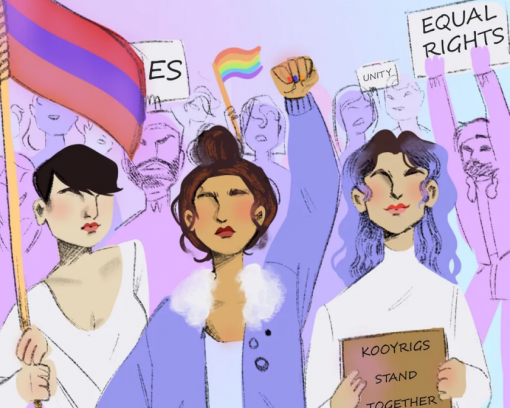Women’s Health and Wellbeing in Armenia

In the innermost, mountainous regions of the Caucasus region lies a small country called Armenia. With a total population of less than three million people, women compose approximately 52.2% of this demographic. Despite more than half of the population being comprised of women, their health and wellbeing are often overlooked—socially and politically.
Unfortunately seen as a taboo, topics such as sex education and mental health are stigmatized. Because of the shame surrounding these topics, there is little access to reproductive health services like contraceptives and safe, induced abortions. There are, however, organizations that take extra steps to ensure equity across the nation, such as the Children of Armenia Fund (COAF) and Women’s Fund Armenia. Among other initiatives, COAF performs medical services to detect breast and cervical cancer at an early stage. Since 2008, about fifty cancer cases have been detected, allowing people to have the best chance of survival as a result of the early screening. Similar programs are beneficial to the whole community and thus encourage all individuals to form healthier habits. Similarly, Women’s Fund Armenia is an organization that also prioritizes women’s physical and mental wellbeing. Some of their initiatives include creating a space for women in the villages of Berdavan and Noyemberyan to pursue economic opportunities through education and empowerment. Oftentimes, women find themselves dependent on their husband for a number of reasons, including financial security. These structured gender roles have been reinforced through generations of Armenian families, which place an immense pressure and expectations upon women to stay home and take care of their children while their husbands go to work. This dynamic can be suffocating for some women, as it creates an unsafe environment where women are forced to stay in their home; this is especially true for those who are victims of domestic violence because they may have no other alternative means of leaving their household in a safe manner. With the production of more community centers throughout various cities, Armenian women will be provided with a safe outlet to escape potential violence at home. Finding a safe space to make new bonds with others who may be experiencing similar difficulties will help alleviate some stress and promote better mental health.
In a study conducted in 2019, researchers found that most people did not use any form of contraception due to lack of availability or cost. About 88% of people in their sample expressed that they rely solely on “natural methods” of contraception. This method of contraception can lead to various harmful outcomes, such as cervical cancer and various sexually transmitted infections (STIs). Many people are not aware of the connection between unsafe methods of contraception and their medical consequences, which is why it is crucial to highlight this gap in knowledge that exists among the population. Many people are falsely educated based on outdated traditions and social constructs. In order to update the social atmosphere of the country, basic education on this topic should be made available to the public. Parents and older generations have limited knowledge about this topic, which is why their children and younger generations remain uneducated on such contraceptive methods and the medical consequences due to their lack of use. Thus, schools and external organizations are responsible to reconstruct the stigmas and taboos present on this topic in order to bring forth positive change to the vital wellbeing of Armenian women across the nation.
References
Barseghyan, Mariam, and Hayk Barseghyan. “Assessment of Reproductive and Sexual Health Literacy of Women in Armenia.” ClinMed International Library, 2019, https://clinmedjournals.org/articles/ijwhw/international-journal-of-womens-health-and-w ellness-ijwhw-5-107.php?jid=ijwhw#cit. Accessed 21 May 2023.
Children of Armenia Fund. “Medical Services.” Children of Armenia Fund, https://www.coaf.org/en/health-programs/medical-services/. Accessed 18 May 2023.
Hovsepian, Tamar. “Hot Topic.” Hot Topic | AGBU, March 2021, https://agbu.org/national-wellness/hot-topic. Accessed 18 May 2023.
“Medical Services.” Children of Armenia Fund, https://www.coaf.org/en/health-programs/medical-services/. Accessed 21 May 2023.
Moughamian, Taleen K. “In Armenia, Abortion Rates are High and Access to Contraception is Limited.” Our Bodies Ourselves Today, 6 February 2013, https://www.ourbodiesourselves.org/blog/in-armenia-abortion-rates-are-high-and-access-to-contraception-is-limited/. Accessed 21 May 2023.
“Partners and Their Stories – Womens Fund Armenia.” Womens Fund Armenia, https://womenfundarmenia.org/partners-and-their-stories/. Accessed 21 May 2023
